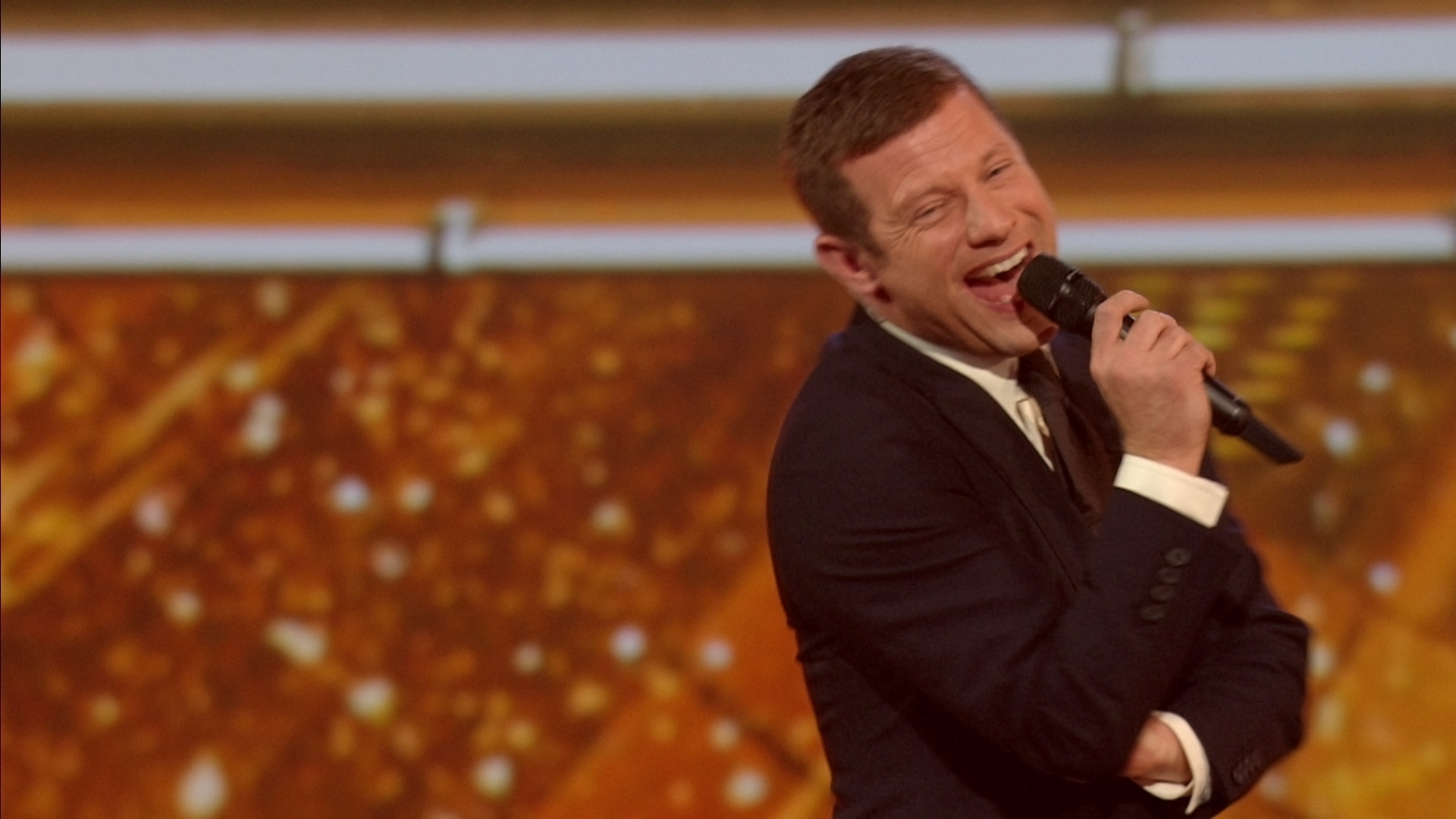3 Reasons Why The X Factor Is Dying

Another article about the demise of the X Factor? Well yes, we're afraid so. In this article we detail what we think are the 3 biggest problems with the X Factor and how the show may be able to reverse or slow it's long downtrend.
An All-Round Negative Experience
It's Saturday night after a long working week, what you need is some light entertainment to give you a lift. Nothing too taxing, nothing too heavy - a televised singing competition seems just the ticket doesn't it? Unfortunately not, whether it's a poor standard of singing, blatant manipulaton or nonsensical judges decisions, watching the X Factor is often a frustrating experience that leaves you wishing you hadn't bothered.
Indeed, it often seems that the only individuals enjoying themselves on The X Factor are the judges. The first 10 minutes of the auditions stages are dedicated to ego-stroking slow-motion clips of the judges stepping onto red carpets ignoring the screaming fans to the side, or being introduced onto the stage to the tune of "O Fortuna" like demi-Gods sent to pass judgement upon the unworthy plebs singing for their favour. It's this degree of self-indulgence that highlights the contrast in tone between the declining X Factor and the still-popular Strictly Come Dancing. Strictly has an air of encouragement, a "well done for giving it a go" feel, even the worst dancer is never made into a villain. Craig Revel-Horwood is the Cowell-esque 'evil' judge, but their styles are completely different, Cowell - like all dictators - is incapable of laughing at himself. In contrast, it's clear to the audience that Revel-Horwood's stony-faced veneer is all a bit of pantomime, we're encouraged to boo and hiss at him, his mask slips enough to let us know he's in on the joke. The true measure of anybody in a position of power comes down to how they exert that power over the powerless, in this respect The X Factor fails dismally. The judges make it clear that they're on a whole other level in every respect to the contestant performing for them. Even contestants considered good enough to progress to the next stages are looked down upon as potential-yet-replaceable proteges at best. The judges egos form a key narrative of the show and it's this unwarranted self-importance that has contributed heavily to The X Factor's downfall.
The rumours and stories about the show do nothing to help the situation. Everyone knows someone who knows someone else who has a bit of dirt on the show behind-the-scenes. The UK isn't a big country, if someone has a negative experience auditioning for the show, word will spread quickly. It appears at this point that the X Factor has annoyed, exploited and mistreated so many people in the name of ratings that far from being a huge talking point that increases viewership, people just think it's a load of rubbish. They know about the manipulation, they see what a stressful (and often pointless) experience it can be to be an X Factor finalist, they feel no connection or control over the show and feel that the judges feedback rarely reflects reality. Some of the stories to emerge are downright distateful, 2007's Niki Evans was actively encouraged by the producers to sing "Dance With My Father" and to cry on camera over her dead father, she refused. Even Leona Lewis quite brazenly cries on demand over a dead relative in the first 10 seconds of this clip. It's clear that in order to succeed on the X Factor, you first have to hand over a decent chunk of your dignity and decency. We also recommend reading this blog by an ex-X Factor contestant to get an excellent insight into how the show works behind the scenes and how soul-destroying it sounds to be a part of it. Another recommendation is Steve Brookstein's Getting Over The X, as well as our previous article "Divas, The X Factor and Media Control" for an insight into the way the show damages contestants reputations by spreading lies in the media. All of the above is unnecessary and only serves to make The X Factor ever more unwatchable.
Conflict of Interest

The X Factor has a serious issue hiding in plain sight that nobody seems to want to address - that the best viewing experience for the audience places them into direct conflict with the creators of the show itself. The premise of The X Factor is simple, the audience listen to singers mentored by a set of judges over a series of weeks and decide which of those singers should receive a recording contract from Simon Cowell. If it isn't already obvious, the issue lies in the fact that one of those judges is Simon Cowell, placing himself in a position where it's utterly impossible to be objective and to allow the audience to truly decide the winner. Cowell owns the record label - it doesn't take a rocket scientist to work out that he can't be impartial when his business finances and reputation are at stake. As a result, Simon dictates the song, staging, image and overall fate of contestants inside and outside of his category despite the fact that no other judge could do the same for his acts.
It's not like anyone else can level the playing field in any other way - the show doesn't even try to disguise the imbalance of power between Simon and the rest of the judges. As executive producer, everybody working for the X Factor is on Simon's payroll. The judges are paid a hefty sum and it doesn't take a genius to know that upsetting your boss will put you at risk of being shown the door. By supporting a contestant in their own category, no matter how much the act deserves such support, they may place themselves at odds with the business objectives of their employer. With this lack of incentive to bite the hand that feeds them the remaining judges are nothing more than pawns spouting the company line, they've no interest in representing the public either. It's not hard to understand why so many have switched off when time after time, a decision is made that is clearly designed to foster a specific result against the wishes of the voting audience. Why watch a show where the goalposts are constantly being shifted? Where's the fun in watching a drawn out coronation of a pre-selected winner?
Naturally, Cowell always seeks to keep the contestants that will provide the best financial return, either by signing them to his record label or because their continued presence will generate publicity. In contrast, the public place more emphasis on how a contestant comes across in general, as well as how well they can sing - all within the sphere of the show itself. The problem arises when an act then goes on to win. Simply declaring somebody the winner projects the concept of the "journey"'s conclusion into the minds of the audience who promptly proceed to emotionally unsubscribe en-masse. The crux of the issue is that Cowell cares primarily about the winner's post-show career whereas the majority of the audience only care about the winnner's pre-career show. Evidence for this paradox is supported by how many X Factor winners end up fading into obscurity after being silently dropped from their label. Up until the Final, a contestant's success is dependent on the continued goodwill and support of the voting public to carry them through to the finish line, the payoff for the audience comes from having the power to elevate a 'regular' person to stardom. However once stardom is attained, what interest do the public have in supporting the act beyond that point? The incentive to see a contestant win the show is completely different to the incentive to provide them with a successful music career. The audience's initial familiarity and attachment to the individual may briefly bouy their careers but it often doesn't take long before, predictably, they sink and their albums migrate off the shelves and into bargain buckets across the country.
We're not saying we don't understand Cowell's desire to have a commanding presence over the show and everyone involved with it. It must be frustrating to see potentially successful acts slip away in favour of the Sam Bailey's, Leon Jackon's, Ben Haenow's and Matt Terry's of the singing world - who can blame him for wanting to steer (or force) the audience towards an artist who stands at least a chance of success? The smart move would be to make the X Factor purely a singing contest without the record label prize. Cowell could then snap up whoever he wanted (as opposed to just the winner) without any need to overtly push his chosen contestants and trample over the will of the audience. If not that, the show would benefit from Cowell leaving the public eye to at least give the impression that the judges are impartial as well lightening the tone of the show. Of course, having Cowell off our screens would diminish his celebrity thus reducing his income and influence anyway. For the show to stand a chance of slowing or reversing it's decline, Simon needs to think long and hard about reducing these conflicts between himself and the audience in any way he can.
The Unwanted X Factor
And so finally we reach The X Factor's biggest and most heinous crime: The absolute betrayal of the show's primary objective.
What is the X Factor? It's the intangible aura, skill and other qualities in a person or group that indisputably make them a star, that unquantifiable something that immediately identifies them as new, unique and exciting. By it's very nature, this person is like finding a needle in a haystack - but considering how woefully unsuccessful the The X Factor has been at locating such individuals after fourteen seasons...you could be forgiven for wondering if the real issue may lie closer to home. The show believes that singing well largely qualifies a person to be a star, whereas in fact being a good singer isn't a particularly rare talent at all. A fleeting glance at even the X Factor guest performers shows that you don't need to have an impeccable singing voice to rise to the highest echelons of super-stardom, something more is required and it's not a gift many individuals possess. The X Factor aren't alone in making this false assumption, it also happens to be the fatal flaw of 'The Voice', the contestants on that show are even more bland than those on The X Factor and none have had any post-show success whatsoever.

With the focus on finding something new and ground-breaking in mind you may wonder then why so many X Factor auditionees appear to fit the same physical and vocal mould. Good looking twenty-somethings, wearing ripped jeans and a hat, generally of good stock with no backstory beyond a few dead relatives and an inspiring single-mother. They emote and wail through unremarkable covers of chart records that the original recording artists themselves would describe as meaningless mass-market factory line garbage - the chances of a short rap segment increases if the contestants are male, black or in a group. Over the years the judges have made clear their belief that shouting a single note/noise with a pained expression for an extended period of time is also a sign of pure, concentrated talent. The final option is to go the complete opposite to the belters and sing in a breathy-whisper intended to highlight the raw, mysterious and ethereal beauty of the lyrics but ultimately requiring little-to-no actual talent. The judges will proclaim "a gap in the market" for these sorts of people apparently unaware that the gap in the market exists because of the void of interest for artists like them.
Far from encouraging those with an 'X Factor' to come out from under the rocks, The X Factor actively discourages individuality by mocking and villifying those who have even a hint of it. They're often portrayed as weird, unpleasant or just something to point and laugh at (helpfully illustrated by edited cuts of the judge's incredulous and patronising expressions). 2016's runner-up Saara Aalto is a perfect example, despite clearly having a unique identity, a cheery self-assuredness and a heap of talent from the start. That uniqueness was used by The X Factor as a weapon to beat her with until halfway through the live shows. Over time, her talent and quirkiness was allowed to be portrayed in a more positive light as the public began to catch on and she finished as that year's runner-up. Similarly 2008's Rhydian Roberts, with his distinct look, confident swagger and unique vocal style, he made himself an easy target. Sensing that he wasn't nearly humble enough to be blessed with the opportunity to be a part of The X Factor, he was labelled arrogant and a bully, the show realised it's mistake too late to change the message and he also finished as runner-up. Rhydian still performs sell-out shows to this day, his fellow finalists do not.
It's not like The X Factor isn't aware of the importance of having an identity, barely a week goes by that a contestant isn't encouraged to find theirs. However you can't simply order someone to find themselves a personality - they either have one or they don't. It's completely impossible when that contestant is so desperate to succeed that they're bending over backwards to fit into whatever mould the show has for them. The themed weeks are the worst of all. Adele and Ed Sheeran don't perform one song in the style of George Michael and then switch to 'Halloween' theme. Shapeshifting by definition makes it impossible to establish an identity.
The X Factor needs to begin looking in the places it traditionally shuns - encouraging and supporting the Honey G's, the Sara Vidoo's and even the Wagner's as performances and a concepts in their own right. Honey G may have been a disaster but she had more charisma than half the contestants in her series combined, she never strayed from her message or her identity, even now she's still the best-known contestant of her series and that has to count for something. The point is that in order to find something new and different, the show needs to stop picking up contestants that look, sound and act the same as the thousand other people that auditioned before them, it's these insultingly generic individuals that should be on the receiving end of the incredulous looks from the judges for their blatant lack of originality. At present, if Madonna, Freddie Mercury or Lady Gaga auditioned for The X Factor they'd be laughed out of the room by the judges who have a very poor record of finding real talent, maybe it's time to try a new approach.
Do you agree or disagree with us? Why do you think the X Factor ratings are continuing to plummet? Let us know in the comments section below.
Comments
a few points
1. Strictly judges can't act like gods because their contestants are celebrities.
2. Positivity makes for better TV and is also why The Voice (esp. in the US) is still going strong while American Idol needed a few years off to reboot.
3. I don't think Simon's presence is a problem. He is not omnipotent and his favour isn't necessarily to his own acts (he happily yielded the more liked contestants to Nick, Cheryl, and Rita two years ago). Also, his long-standing presence gave rise to the de-facto "head judge's chair" while he's gone (held by Gary for one year and Nicole for two).
4. The manipulations are the show's way of trying to bridge the crowd that only cares about the show journey and the crowd that will follow their faves post-show. News of ITV being pleased with XF's wins in the 16-34 market over Strictly (despite being routed overall) points to the show being okay with jettisoning the MOR crowd to assure a better journey for the Rak-Sus of the world.
5. It's weird to call for the show to embrace the eccentric contestants when these contestants are HARD SELLS for the voting public, even with manipulation. This will force the show to ramp up their nudging, which, according to you, is part of XF's malaise. It's a lose-lose for them.